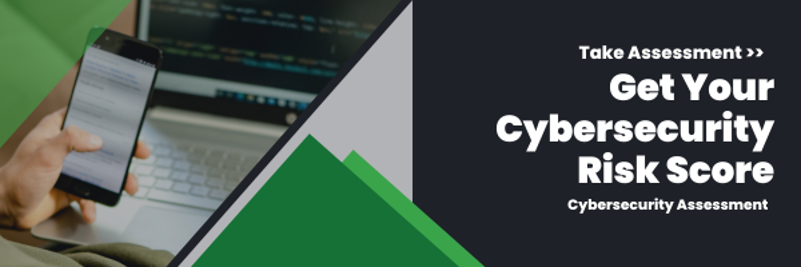If you’re a small-to-medium-sized business (SMB) that believes you’re not a target for cyber attacks, think again.
Many SMB owners assume that cyber criminals only target large companies, but the reality is that small businesses often face even more significant risks. With limited resources and often less robust cybersecurity measures in place, SMBs are highly vulnerable. Shockingly, over 70% of small business owners reported being impacted by a cyber attack last year.
Discover eight reasons why small business cybersecurity is a big concern – and what can be done to address it.
Read: The 9 IT Best Practices for Small-to-Medium-Sized Businesses
1. More Attack Surface
Today, technology powers nearly every aspect of business operations. As your company grows, the number of connected devices, including computers, tablets and smartphones, increases. Mobile devices, whether for remote work or in-office use, offer flexibility but also introduce potential risks. Allowing employees to use personal devices without stringent security measures extends company data beyond the safety of your network, exposing it to threats. The rise of the Internet of Things (IoT) adds another layer of vulnerability. As companies adopt more internet-connected machinery and sensors, these endpoints often lack strong security protections, making them easier to exploit.
2. The Increasing Frequency of Cyber Attacks
Small businesses make up 43% of small businesses annually, and for good reason. Hackers know that many SMBs lack the resources or knowledge to implement comprehensive cybersecurity measures. This makes them easy targets for attacks.
3. Big Data
Businesses are generating and storing more data than ever before. From customer information and internal communications to financial records and intellectual property, protecting this sensitive data is crucial. More data means more attractive opportunities for hackers, especially when stored across multiple servers and devices. IT teams may not have visibility to all data if employees and departments use third-party systems for storage and collaboration.
4. Financial Impact of Cyber Attacks
The financial consequences of a cyber attack can be catastrophic for small businesses. The average cost of a breach to a small business can range from $120,000 to $1.24 million. For many SMBs, an expense of this magnitude could mean bankruptcy or forced closure. In fact, 60% of businesses that experience significant data loss will close within six months. Even if the company is fortunate enough to survive the immediate financial impact, it may face ongoing costs in legal fees, regulatory fines and lost revenue.
5. Reputational Damage
Beyond the financial losses, a cybersecurity incident can significantly damage a company’s reputation. Customers expect their personal and financial information to be protected, and when a data breach occurs, trust is gone. The loss of customer confidence can result in lost business, negative reviews and a tarnished brand image – factors that can take years to rebuild.
6. Lack of Cybersecurity Resources
Small businesses often lack the dedicated IT departments or cybersecurity professionals needed to implement and maintain robust cybersecurity measures. This lack of expertise leads to gaps in security, from outdated software to untrained employees. Additionally, many SMBs prioritize other operational costs over investing in cybersecurity services, leaving their systems and data vulnerable to attack. Cyber criminals know this, and they specifically target small businesses because they know they’re under-protected.
7. Human Error
Human error remains one of the biggest cybersecurity threats. Phishing attacks, which trick employees into revealing sensitive information, are one of the most common tactics used by cyber criminals. In a small business where a few key employees handle most of the workload, one mistake can give hackers access to valuable company data. Without regular cybersecurity training and awareness programs, staff are more likely to fall victim to these kinds of schemes.
8. Regulatory Requirements
Governments and regulatory bodies are implementing stricter cybersecurity measures, even for small businesses. From GDPR to CCPA, companies must comply with stringent data protection laws or face the consequences. Failing to meet these regulatory requirements not only opens businesses up to cyber attacks but can also result in hefty fines and legal repercussions.
How Small Businesses Can Protect Themselves
Cybersecurity for SMBs doesn’t have to be overwhelming. Here are some steps businesses can take to protect their systems and data from the growing threat of cyber attacks:
- Invest in cybersecurity solutions: Use reliable antivirus software, firewalls and encryption to protect your business from external threats. Consider managed IT services if in-house cybersecurity expertise is unavailable.
- Train employees: Provide regular cybersecurity training to educate staff on spotting phishing emails, using strong passwords, securely handling data and following security and Internet browsing protocols.
- Regularly update software: Keep software, applications and operating systems updated, as many cyber attacks exploit vulnerabilities in outdated software.
- Backup data: Regularly backup important data to a secure, off-site location and the cloud. This will help you recover quickly in the event of a ransomware attack or data breach.
- Monitor and review: Conduct regular security assessments and audits to identify potential vulnerabilities in your system so you can prioritize mitigation efforts and address them promptly.
- Strong access controls: Implement strong access controls to limit unauthorized access to sensitive systems and data. Staff should only have access to data and systems they need to complete their jobs. This should include physical access controls.
Read: The Ideal Cybersecurity Program for SMBs
Work with a Cybersecurity Professional Like Thriveon
If your small business lacks the resources or expertise, consider working with a cybersecurity professional like Thriveon. We are an award-winning managed service provider with a team of dedicated chief information officers who align your business to over 500 industry best practices. We will help you implement robust cybersecurity best practices and protect your company from cyber attacks.
Schedule a meeting now to see how we can help you.

